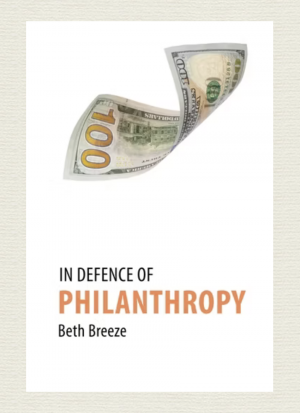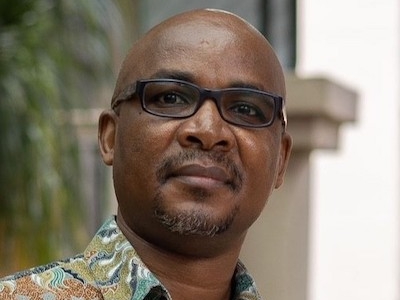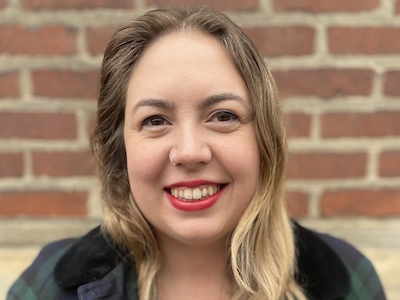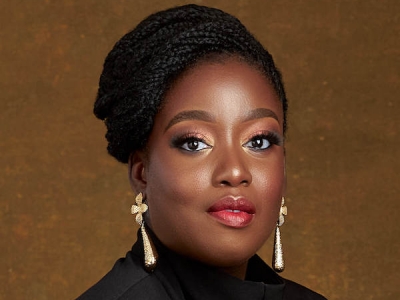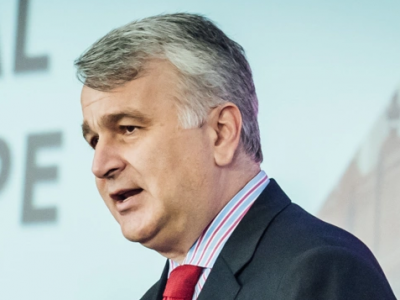As we begin a new year, many Canadians may still be feeling the warm glow from making or catching up on charitable contributions at year’s end or helping out friends and neighbours over the holidays. While philanthropy can produce both individual and societal benefits, it has come under hyper-criticism in recent years: as colonial, built upon and reinforcing inequality, ineffective, selfish, and more.
The criticisms have become so intense that Beth Breeze was prompted to make a positive case for philanthropy in her 2022 book, In Defense of Philanthropy. While many of the critiques are actually aimed at the inequality of wealth rather than philanthropy per se, there’s no doubt that philanthropy could do much better than it does. Even some supporters of our proposal to establish a school of philanthropy have suggested we not call it ‘philanthropy’ because the term has become so misunderstood.
A Rethinking & Rebranding
Rather than abandon the concept of philanthropy, however, I suggest it would benefit from some rethinking and rebranding to better reflect its potential to be both more diverse and more inclusive.

Read the previous installment of the Building Bridges series “The Benefits of a School of Philanthropy in Canada,” by Dr. Susan Phillips.
The traditional and still very popular view is that philanthropy is ‘the love of humankind,’ a definition that derives from the Greek myth of Prometheus Bound some 2500 years ago. While this promotes a warm glow and can be inspiring, it conflates philanthropy with altruism (or sometimes with generosity). Altruism is certainly an important motivation for philanthropy, but not all philanthropy is driven by altruism. Rather, I may give and volunteer simply because a friend asked me, or I enjoy the social aspects, or I have a desire for recognition with my name on a building.
A more instrumental definition, one that is favoured by academics, is that philanthropy is ‘the intentional use of private resources (time, treasure, talent and things) for public purposes.’ This view is agnostic to motivations. It is inclusive of giving, volunteering and other forms of participation. It does not assume that philanthropy necessarily produces positive outcomes or social good as even well-intentioned philanthropy can produce null or negative results.
While technically precise, this definition is not very catching or inspiring. As an open-ended concept, however, it facilitates movements that seek to maximize the benefits of philanthropy, either to society or the donor. For instance, “effective philanthropy [altruism – EA]” aims to help donors do the most good by applying ‘scientific’ means of determining which causes will benefit the most people (see the PANL series on EA by Calum Carmichael). ‘Community philanthropy’ seeks to shift power and share decision-making with beneficiaries and historically marginalized communities. Its conceptual cousin, ‘justice philanthropy,’ addresses social and economic inequities and structural racism through systems change and strives to empower equity-deserving communities. Shifting the focus to the donor, ‘virtue philanthropy’ focuses on enabling donors to lead fulfilled and virtuous lives through their giving.
Philanthropy as a Practice of Citizenship
While these hyphenated forms of philanthropy push philanthropy to do better, my preferred definition is this: Philanthropy is the practice of citizenship – how people engage in and with their communities, however they define ‘community.’ This view of philanthropy has roots in late 18th century Enlightenment France where philanthropie was positioned as a secular alternative to ‘charity’ (in which the advantaged helped the disadvantaged for love of God) and where it was called upon to encourage collective action to address social ills (Gautier, 2020).

Read another installment in the “Building Bridges” series by Dr. Susan Phillips: “Education & Research Infrastructure for the Nonprofit & Philanthropic Sector: Canada as Laggard.”
My roots in the concept of citizenship are more recent, drawing on the work of ‘citizenship regimes’ with my past PhD Supervisor, Jane Jenson (note to PhD students: supervisors never fade). The exercise of citizenship isn’t based on nationality or defined by passports but refers to how citizens relate to each other (as well as to the state). This relationship involves rights and responsibilities and creates a sense of belonging (or negatively, exclusion). Philanthropy as the exercise of citizenship embraces both the individual and collective community; it involves actions of all types (giving, volunteering, helping others and activism) and implies equity among citizens – unless we treat some as ‘second-class’ citizens, which needs to be called out.
In practice, philanthropy often falls short of promoting active citizenship. One reason is an information deficit: we don’t give or participate because we don’t know which organizations to engage with that will make a difference. This, in turn, is part of an overall ‘data deficit’ in the sector, which is the topic of a future piece. While I’m quite content with the goal of creating a school of ‘philanthropy,’ we need to work on making the practice of philanthropy more accessible, collective, inclusive and impactful.
PS: For those interested in a history of philanthropy, our MPNL colleague, Calum Carmichael, is the only scholar I know who can cover thousands of years of its development in a single lecture. Note this was recorded for an MPNL class during COVID, and thus lacks the ‘bells and whistles’ of a professional production. It’s distinctive for its content: Dr. Calum Carmichael on Philanthropy from the Stone Age through the Enlightenment.
Dr. Susan Phillips is on LinkedIn. Banner photo is courtesy of Arnold Dogelis.
Sign up for PANL Perspectives, MPNL’s free newsletter.
Friday, January 5, 2024 in Building Bridges
Share: Twitter, Facebook
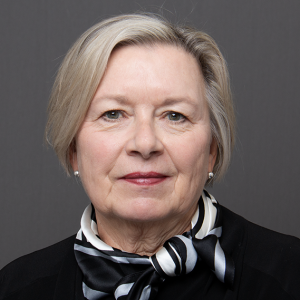 By
By 